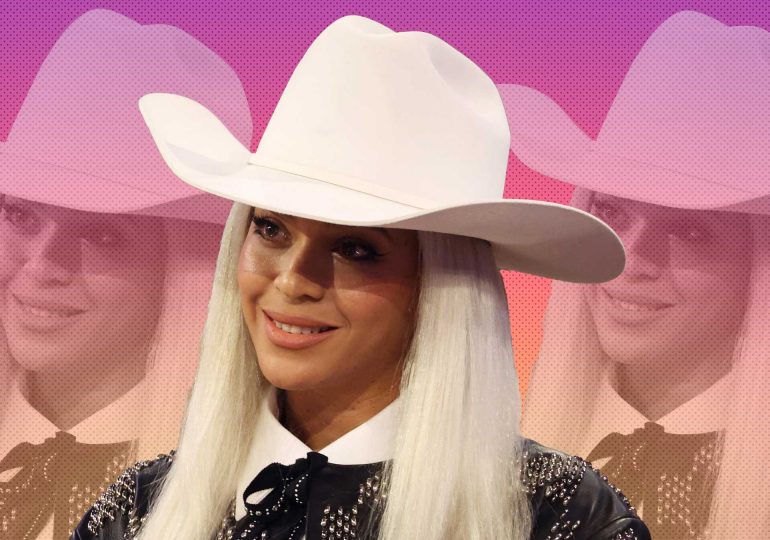The greatest lie country music ever told was convincing the world that it is white. That hillbilly music turned white at the turn of the 20th century. And that Black musicians who created this music, alongside low-income white people, were suddenly classified under “race music.” The lie became a truth.
Since then, the country music industry has done everything in its power to maintain this reality: Unspoken rules exchanged among programmers and DJs at terrestrial radio stations to enforce the industry’s self-appointed laws of segregation on the basis of race and gender. The grotesque mistreatment of Black country artists, especially Black women artists like the legendary Linda Martell, the first Black female solo artist to achieve commercial success in country music, who did not receive adequate payment or recognition during her career. The shared doctrine that country music requires groundbreaking musicians like Martell and DeFord Bailey, the first Black male country star, to be broken, to be mistreated, to be abused. So, why would one of the most powerful women in the world, Beyoncé Giselle Knowles-Carter, elect to endure this?
[time-brightcove not-tgx=”true”]
Why would Knowles-Carter decide to re-enter the country music industry after her own personal experience of mistreatment at the 2016 Country Music Awards? Because Knowles-Carter was raised in a household where young girls were told to tell the truth and shame the devil.
The truth is that country music has never been white. Country music is Black. Country music is Mexican. Country music is Indigenous. She did not need to read Black Country Music: Listening For Revolutions by Francesca Royster, Hidden in the Mix: The African American Presence in Country Music, or My Country, Too: The Other Black Music by Pamela E. Foster to understand that. Knowles-Carter simply needed to walk outside her house in Houston, Texas and witness the cultural exchange between Black, Tejano, and Indigenous communities in her hometown. She did not need white validation to classify her country—she has been country for the entirety of her life.
The greatest influence in a girl’s life is her mother. Knowles-Carter’s mother, Tina Knowles, was born in Galveston, the birthplace of Juneteenth. By birth, she is connected to the first generation of Black people in Texas who were freed by General Gordon Granger’s orders on June 19, 1865. That is an unique experience that cannot be manufactured by a songwriting camp in Nashville. Or can be replicated by a white country music star born above the Mason-Dixon Line or outside of the United States.
When Knowles-Carter adorns herself in Western gear, it is not a virtue signal to the gatekeepers in Nashville to let her in. It is not a white flag to indicate her surrender, an acknowledgement that in order to be received in the country music industry that she must abject herself to their will. It is her trumpet. A trumpet that must be blown, for the walls of Nashville’s Music Row to fall down, so the rightful heirs of country music may come in.
There is little to be known about Knowles-Carter’s forthcoming country album with the exception of “Texas Hold Em” and “16 Carriages.” But in the days since their release, Black-led and founded country organizations such as The Black Opry have received a significant increase in followers, banjo player Rhiannon Giddens, a long-time advocate and public educator of the banjo’s African roots, featured on “Texas Hold ‘Em”, and steel guitarist Robert Randolph, a master of his craft who is heard on “16 Carriages”, are experiencing the Beyoncé effect. Adia Victoria. Amri Unplugged, Brittney Spencer, Mickey Guyton, Reyna Roberts, Rissi Palmer, Sacha, Tanner Adell, and other Black talents in the country music space are being shared across digital and social media platforms.
Read More: Mickey Guyton Is TIME’s 2022 Breakthrough Artist of the Year
Without uttering a single word, Knowles-Carter has used her stardom to highlight those who have never left country music, those who have challenged gatekeepers in the country music industry, and those who are the descendants of Bailey and Martell’s legacies. The failure of country music’s “truth” is that those who created the genre never left—in spite of the fact that they may have not been perceived by those holding positions of power in the country music industry. Those were not the individuals whose validation mattered to them.
They made music for the people who grew up listening to country music with their grandparents on the radio. They made music for those who grew up on the Delta but migrated outside of The South who still seek a remembrance of home. They made music for fans of country music, who feel unwelcome at country music festivals and dance halls. And for the people who get called MAGA for listening to country music.
One of the biggest lies this nation has ever told is that Black people are not country. That they do not live in “small towns,” despite what Jason Aldean says. Black people have always lived in the country. It is where we prayed. It is where we sang. It is where we worshiped.
To be Black and country is to undo the historical narrative that has been told to you. The plantation is not the nucleus of country identity, it is not the totem of the South. Knowles-Carter’s presence in country music is signaling the birth of a new era, a renaissance if you will. It is time for the institutional oppressive regimes of country music to be removed, and for those who have continued to carry on the legacy of country’s music heart and soul to be seated at the table.
Whether Knowles-Carter will address country music’s racialized past or shed light on its inherent lies is unknown, but like archangel Gabriel who blew the horn to bring forth Judgment Day. She has the ability to call into account those who kept country music from its rightful heirs. And maybe that’s all she needs to do on Act II.
Leave a comment








